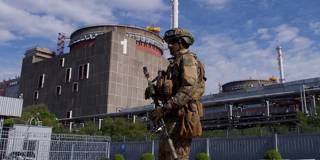OnPoint Subscriber Exclusive
Longer Reads provide in-depth analysis of the ideas and forces shaping politics, economics, international affairs, and more.

The Danger of Nuclear Reactors in War
Russia's scorched-earth war of aggression in Ukraine poses a threat to nuclear reactors unlike anything the world has ever seen. After decades of inaction, the international community can no longer afford to rely on loosely defined norms and warring parties' own self-restraint.
LOS ANGELES – The Russian Army’s march into Ukraine on February 24 was horrific for many reasons, not least because it introduced the prospect of a military strike on any one of Ukraine’s 15 nuclear power reactors and spent-fuel pools, risking an immense release of radioactive elements. Fortunately, that has not happened – yet.